Sports
The Runner’s Nutrition Checklist: Top 10 Essential Vitamins and Minerals for Marathon Training
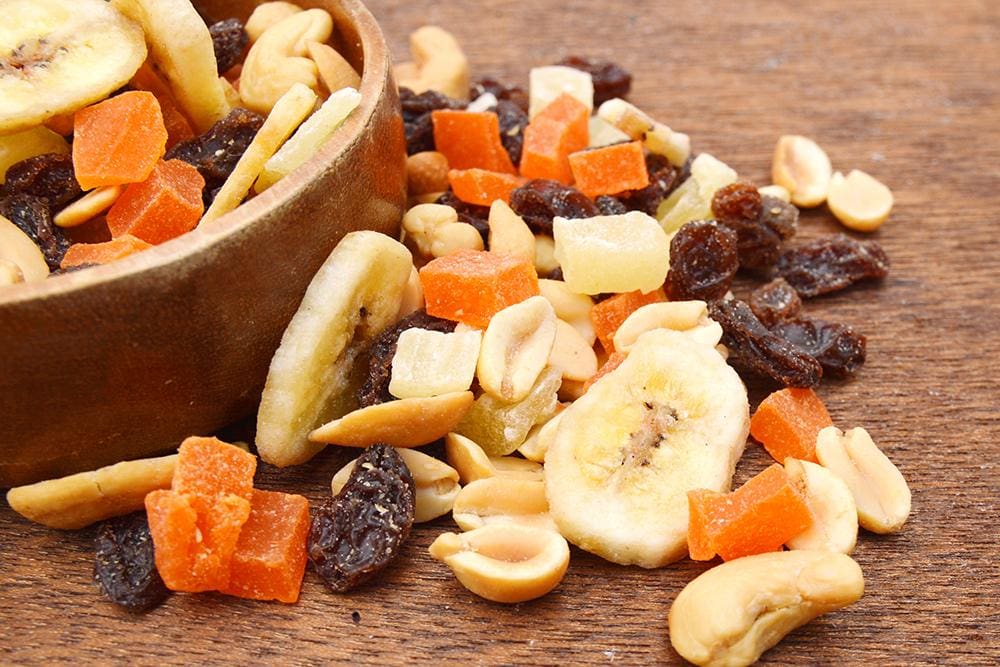

As marathon training demands peak physical performance, ensuring the body is equipped with the essential vitamins and minerals is imperative for runners. The right balance of nutrients can make a significant difference in the runner’s endurance, recovery, and overall health.
From iron to omega-3 fatty acids, each nutrient plays a crucial role in supporting the body during the rigorous demands of marathon training. Understanding the top 10 essential vitamins and minerals for marathon training can provide runners with the knowledge needed to optimize their nutrition and achieve their performance goals.
Key Takeaways
- Iron, calcium, magnesium, and vitamin D are essential minerals and vitamins for runners during marathon training.
- Iron is crucial for oxygen transport and energy production, and can be found in lean red meat, poultry, fish, lentils, beans, tofu, and spinach.
- Calcium is important for bone health and muscle function, and can be obtained from dairy sources like milk, yogurt, and cheese, as well as non-dairy sources like leafy green vegetables and fortified plant-based milk alternatives.
- Magnesium is crucial for energy production and muscle function, and can be found in nuts, seeds, whole grains, and leafy green vegetables. Consider supplements if dietary needs are not met.
Iron Levels
Ensuring adequate iron levels is crucial for runners to support oxygen transport, energy production, and overall performance. Iron is a key component of hemoglobin, the protein in red blood cells responsible for carrying oxygen to the muscles and other tissues. Without sufficient iron, runners may experience fatigue, decreased endurance, and reduced performance. It is especially important for female runners to monitor their iron levels, as they are at a higher risk of iron deficiency due to menstrual blood loss.
Aim to include iron-rich foods in your diet, such as lean red meat, poultry, fish, lentils, beans, tofu, and spinach. Pairing these foods with a source of vitamin C, like citrus fruits or bell peppers, can enhance iron absorption. Additionally, consider incorporating fortified cereals and grains into your meals. If you struggle to meet your iron needs through diet alone, consult with a healthcare professional about the potential need for iron supplementation.
Monitoring and maintaining adequate iron levels is essential for runners to optimize their oxygen-carrying capacity, sustain energy levels, and enhance overall performance. By prioritizing iron intake, runners can better support their bodies’ demands and strive for peak athletic achievement.


Calcium Sources
Adequate intake of calcium is essential for runners to support bone health, muscle function, and overall performance.
Calcium is crucial for maintaining strong bones and preventing stress fractures, which are common in long-distance runners.
While dairy products like milk, yogurt, and cheese are well-known sources of calcium, there are plenty of non-dairy options for runners who desire freedom in their dietary choices.
Leafy green vegetables such as kale, spinach, and collard greens are excellent sources of calcium.
Additionally, fortified plant-based milk alternatives like almond milk, soy milk, and oat milk can provide a significant amount of calcium.


Canned fish with soft, edible bones such as salmon and sardines are also rich in calcium.
For those who follow a vegan diet or are lactose intolerant, calcium-fortified foods like tofu, orange juice, and breakfast cereals can contribute to their daily calcium intake.
It’s essential for runners to incorporate a variety of these calcium sources into their diet to ensure they meet their daily requirements and support their training and performance goals.
Magnesium for Athletes
Magnesium plays a crucial role in supporting the energy production, muscle function, and overall performance of athletes, including runners. As an essential mineral, magnesium is involved in over 300 enzymatic reactions in the body, making it vital for various physiological functions. For athletes, adequate magnesium levels are particularly important due to its involvement in energy metabolism and muscle contraction.
During prolonged exercise, such as marathon training, the body’s demand for magnesium increases. This mineral helps to convert food into energy, regulate muscle and nerve function, and maintain a healthy immune system. Additionally, magnesium plays a role in maintaining normal heart rhythm and bone strength, which are of utmost importance for runners.


Athletes can obtain magnesium from a variety of food sources including nuts, seeds, whole grains, and leafy green vegetables. While a well-balanced diet can provide a good amount of magnesium, some athletes may benefit from magnesium supplements, especially if they have specific dietary restrictions or struggle to meet their magnesium needs through food alone.
Ensuring adequate magnesium intake is vital for athletes striving to optimize their performance and recovery.
Vitamin D Importance
Vitamin D plays a crucial role in supporting bone health, immune function, and overall athletic performance, making it an essential nutrient for runners and other athletes. Adequate levels of vitamin D are essential for athletes to perform at their best and support their overall health.
Here are five key reasons why vitamin D is important for runners and other athletes:
- Bone health: Vitamin D is essential for calcium absorption, which is crucial for maintaining strong and healthy bones, reducing the risk of stress fractures and other bone-related injuries.
- Muscle function: Vitamin D is important for muscle contraction and overall muscle function, which is vital for athletic performance and recovery.
- Immune function: Vitamin D plays a role in supporting the immune system, helping athletes stay healthy and recover faster from intense training sessions.
- Inflammation regulation: Adequate vitamin D levels may help reduce inflammation, potentially aiding in faster recovery and injury prevention.
- Energy levels: Vitamin D is involved in energy production and can help combat fatigue, ensuring athletes have the energy they need for training and competition.
Ensuring sufficient vitamin D intake through a combination of sunlight exposure, diet, and supplementation can help athletes optimize their performance and overall well-being.


Potassium-Rich Foods
Potassium-rich foods are an important aspect of a runner’s nutrition, providing essential nutrients that support muscle function and overall athletic performance. As a runner, it’s crucial to maintain proper potassium levels in the body. Potassium is an electrolyte that plays a vital role in muscle contraction, fluid balance, and nerve function.
During long-distance running, the body loses potassium through sweat, making it necessary to replenish these levels through diet. Incorporating potassium-rich foods such as bananas, sweet potatoes, spinach, and yogurt into your meal plan can help ensure adequate potassium intake. These foods not only provide a healthy dose of potassium but also offer other essential nutrients like carbohydrates, vitamins, and minerals that are beneficial for sustained energy and endurance during training.
Additionally, potassium-rich foods can aid in preventing muscle cramps, which are common during intense physical activity. By including these foods in your diet, you can support your body’s optimal performance and recovery, ultimately enhancing your overall running experience.
Zinc Benefits
Adequate intake of zinc is essential for runners as it plays a crucial role in supporting immune function, protein synthesis, and overall recovery from intense physical activity. Zinc is a mineral that is involved in numerous aspects of cellular metabolism, including immune function, protein synthesis, wound healing, DNA synthesis, and cell division.
For runners, maintaining optimal zinc levels can be particularly beneficial due to its potential to boost immune function, reduce exercise-induced inflammation, and support overall recovery. Here are five key benefits of zinc for marathon training:
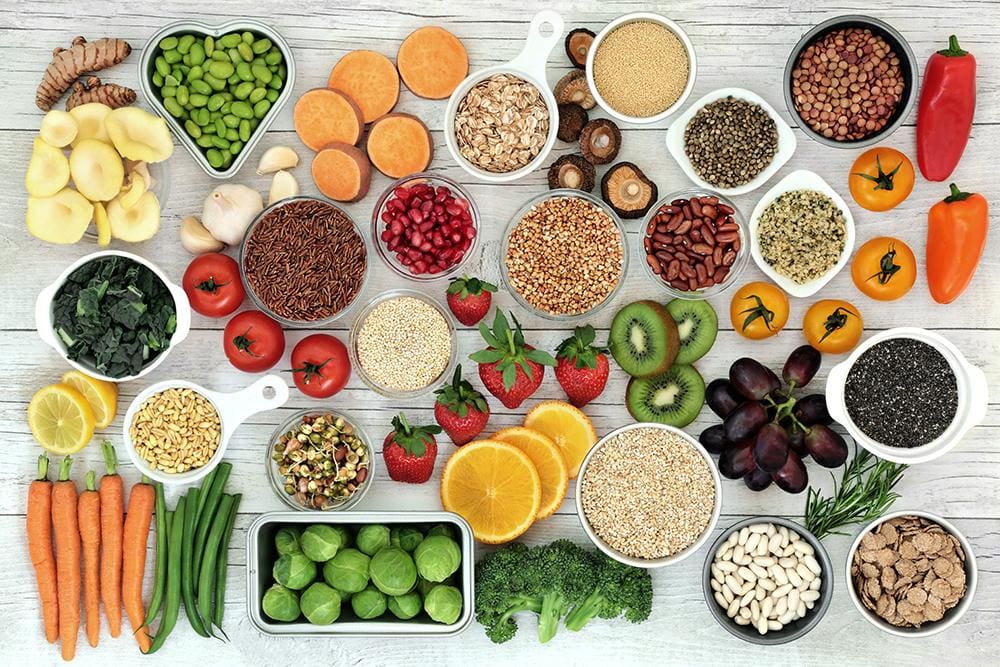

- Immune Support: Zinc helps to maintain the integrity of the immune system, reducing the risk of infections and supporting overall health.
- Muscle Repair: It aids in protein synthesis, crucial for repairing and building muscle tissues post-training.
- Energy Production: Zinc is involved in the metabolism of carbohydrates, fats, and proteins, contributing to sustained energy levels during long runs.
- Wound Healing: It plays a critical role in the healing process of wounds and may help with recovery from exercise-induced muscle damage.
- Antioxidant Defense: Zinc acts as an antioxidant, helping to combat the oxidative stress that can occur during prolonged endurance activities.
Incorporating zinc-rich foods into the diet can be an effective way for runners to ensure they are meeting their daily requirements and reaping the benefits of this essential mineral.
B-Vitamins for Energy
B-vitamins play a crucial role in energy production and metabolism, making them essential for runners looking to optimize their performance. These nutrients support the body’s ability to convert food into fuel, aiding in the efficient release of energy during physical activity.
Understanding the impact of B-vitamins on energy levels can help runners tailor their nutrition to meet the demands of their training and racing.
Energy Production Support
Supporting the body’s energy production processes requires a balanced intake of essential B-vitamins, which play a crucial role in converting food into fuel for physical activity. B-vitamins, including B1 (thiamine), B2 (riboflavin), B3 (niacin), B5 (pantothenic acid), and B6 (pyridoxine), are essential for the metabolism of carbohydrates, fats, and proteins. They help in the production of energy from the food we consume, making them vital for marathon training and overall athletic performance.
These vitamins also support the health of the nervous system, aiding in optimal muscle function and coordination during training and races. Additionally, B-vitamins contribute to the synthesis of red blood cells, which are responsible for carrying oxygen to working muscles, further enhancing endurance and performance.


It’s important for runners to ensure they have an adequate intake of these B-vitamins to support their energy needs and overall well-being.
Nutrient for Metabolism
To optimize energy production and support the body’s metabolic processes, a balanced intake of essential B-vitamins is crucial, as they play a fundamental role in converting food into fuel for physical activity.
B-vitamins, including B1 (thiamine), B2 (riboflavin), B3 (niacin), B5 (pantothenic acid), B6 (pyridoxine), B7 (biotin), B9 (folic acid), and B12 (cobalamin), are essential for converting carbohydrates into glucose, which is used to produce energy. Furthermore, they aid in the metabolism of fats and proteins, necessary for muscle function and repair.
Inadequate levels of B-vitamins can lead to decreased energy production, fatigue, and impaired exercise performance. Therefore, ensuring an adequate intake of B-vitamins through a balanced diet or supplementation is vital for sustaining energy levels and supporting overall metabolic function during marathon training.
Omega-3 Fatty Acids
In the realm of runner’s nutrition, Omega-3 fatty acids play a crucial role in supporting overall health and performance. Understanding the benefits of Omega-3 and knowing the food sources that are rich in these essential fatty acids can significantly impact a runner’s diet and training regimen.
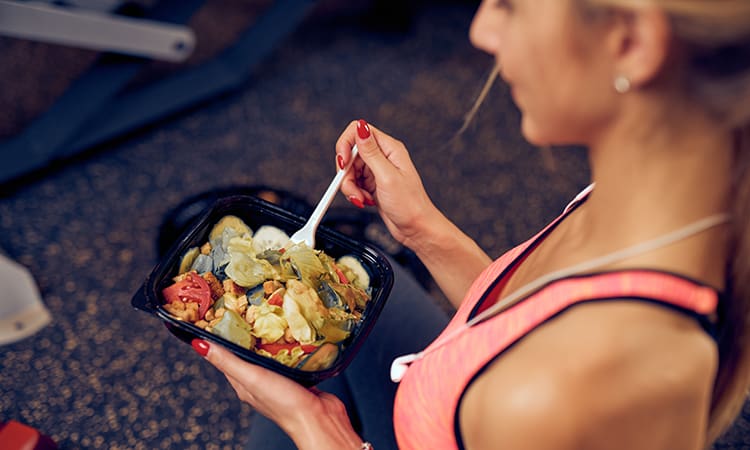

As we consider the significance of Omega-3 fatty acids, it’s important to explore the points related to their benefits and the best sources for incorporating them into a runner’s diet.
Benefits of Omega-3
An essential component of a runner’s nutrition is the incorporation of Omega-3 fatty acids, known for their numerous health benefits and potential performance-enhancing effects. Omega-3 offers a range of benefits for runners, including:
- Reduced Inflammation: Omega-3 fatty acids can help reduce inflammation in the body, potentially minimizing post-run muscle soreness.
- Improved Joint Health: By supporting joint lubrication and reducing stiffness, Omega-3 can contribute to overall joint health, crucial for runners.
- Enhanced Cardiovascular Function: Omega-3 has been linked to improved cardiovascular function, aiding in endurance and overall heart health.
- Brain Health: Omega-3 supports cognitive function, which is essential for maintaining focus and mental clarity during long runs.
- Increased Oxygen Delivery: Research suggests that Omega-3 may enhance the capacity of red blood cells to carry oxygen, potentially improving running performance.
Incorporating Omega-3 into a runner’s diet can offer a multitude of benefits, supporting overall health and performance.
Food Sources
Runners can obtain Omega-3 fatty acids from a variety of food sources, each offering unique nutritional benefits to support their training and overall health.
Fatty fish such as salmon, mackerel, and sardines are excellent sources of Omega-3s, providing eicosapentaenoic acid (EPA) and docosahexaenoic acid (DHA), which are beneficial for heart health and reducing inflammation.
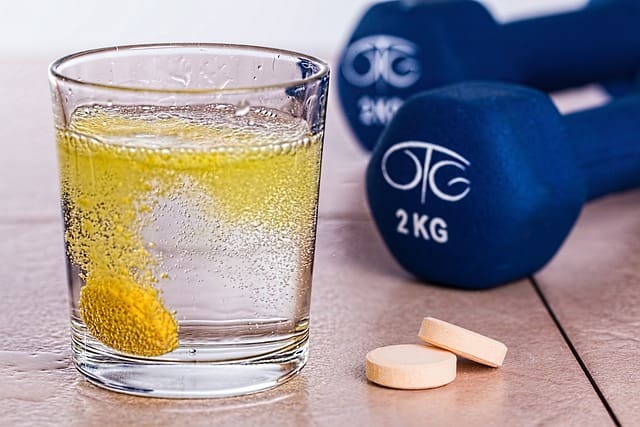

For those following a plant-based diet, sources like chia seeds, flaxseeds, and walnuts are rich in alpha-linolenic acid (ALA), a precursor to EPA and DHA.
Additionally, fortified foods such as certain brands of eggs, yogurt, and milk can also provide Omega-3s.
Including a variety of these foods in the diet can help runners meet their Omega-3 needs while enjoying the freedom to choose options that align with their dietary preferences.
Antioxidant-Rich Foods
When selecting foods to support their training, runners should consider incorporating a variety of antioxidant-rich options into their nutrition plan. Antioxidants are essential for runners as they help combat the oxidative stress that occurs during intense physical training.
Here are five antioxidant-rich foods that runners should consider including in their nutrition plan:
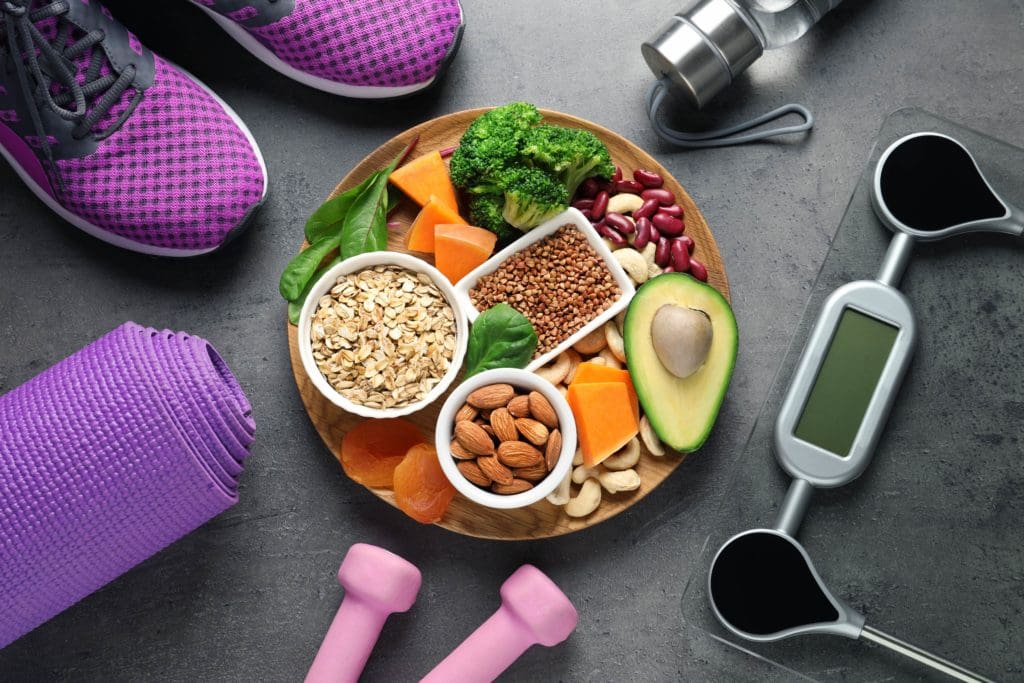

- Berries: Blueberries, strawberries, raspberries, and blackberries are all rich in antioxidants such as vitamin C and flavonoids, which can help reduce muscle damage and inflammation.
- Dark Chocolate: High-quality dark chocolate contains powerful antioxidants called flavonoids. It can help improve blood flow and lower blood pressure, benefiting cardiovascular health.
- Nuts: Almonds, walnuts, and pistachios are rich in antioxidants such as vitamin E, which can help reduce muscle damage and inflammation caused by exercise.
- Spinach: Packed with antioxidants like vitamin C, vitamin E, and beta-carotene, spinach can help protect the body from oxidative stress and support overall health.
- Green Tea: Known for its high concentration of antioxidants, green tea can help reduce muscle damage and inflammation, and improve overall recovery for runners.
Vitamin E for Recovery
Let’s now turn our attention to the crucial role of Vitamin E in the recovery process for runners.
We will explore the various benefits of Vitamin E, as well as its primary food sources.
Understanding the significance of Vitamin E in post-run recovery can greatly enhance a runner’s overall performance and well-being.
Benefits of Vitamin E
Recovery after intense physical activity can be supported by incorporating Vitamin E into a runner’s nutrition plan. Vitamin E offers several benefits that aid in post-exercise recovery, making it a crucial component of a runner’s diet.
Here are some of the key benefits of Vitamin E for recovery:


- Antioxidant Properties: Vitamin E acts as a powerful antioxidant, helping to reduce oxidative stress and inflammation in the body after strenuous exercise.
- Muscle Repair: It plays a vital role in muscle repair and recovery, aiding in the restoration of muscle cells damaged during training.
- Immune Function: Vitamin E supports immune function, which can be compromised by intense exercise, helping to prevent post-workout illness.
- Cell Membrane Protection: It helps protect cell membranes from damage, ensuring proper functioning and recovery of cells.
- Improved Circulation: Vitamin E can aid in improving circulation, facilitating the delivery of nutrients and oxygen to muscles for faster recovery.
Food Sources
Incorporating a variety of nutrient-rich foods into a runner’s diet can provide essential sources of Vitamin E, which is crucial for supporting post-exercise recovery.
Foods rich in Vitamin E include nuts, seeds, and vegetable oils such as sunflower, safflower, and wheat germ oil. Almonds, hazelnuts, and sunflower seeds are particularly high in Vitamin E and can be easily incorporated into meals or consumed as snacks.
Incorporating these foods into a post-workout meal or snack can help replenish the body’s Vitamin E stores, which play a key role in reducing exercise-induced oxidative stress and inflammation, thereby supporting muscle recovery.
Frequently Asked Questions
What Are Some Lesser-Known Sources of Iron for Runners Who May Be at Risk for Deficiency?
While many runners turn to traditional iron sources like red meat, there are lesser-known options such as lentils, tofu, and pumpkin seeds. These plant-based alternatives offer a diverse range of nutrients and can help combat iron deficiency.
Are There Any Natural Alternatives to Dairy for Increasing Calcium Intake for Marathon Runners?
Yes, there are natural alternatives to dairy for increasing calcium intake for marathon runners. Foods like leafy greens, almonds, sesame seeds, and fortified non-dairy milk and yogurt can provide ample calcium for runners.
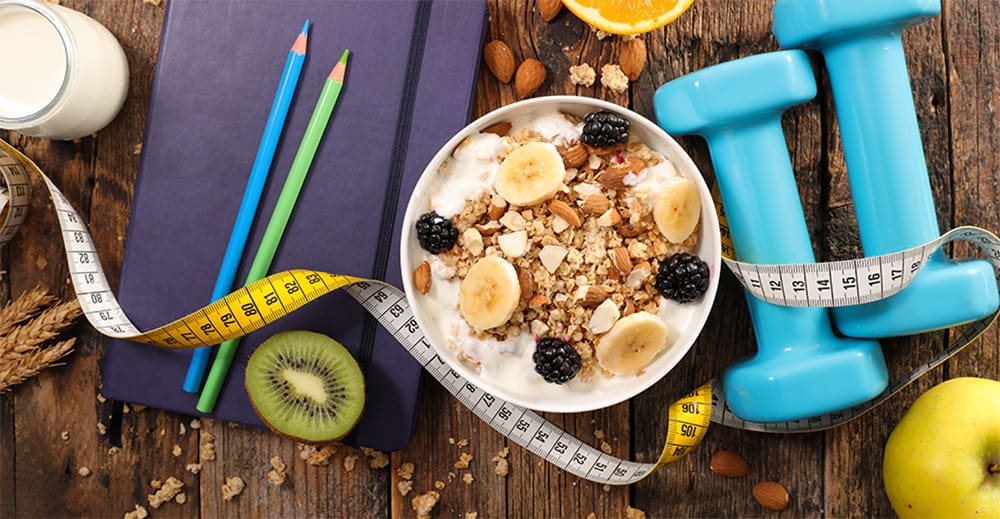

How Does Magnesium Specifically Benefit Athletes During Marathon Training?
Magnesium benefits athletes during marathon training by supporting energy production, muscle function, and electrolyte balance. It aids in protein synthesis and helps reduce muscle cramps and soreness. Adequate magnesium intake is crucial for optimizing athletic performance and recovery.
What Are Some Non-Sunlight Sources of Vitamin D That Can Be Beneficial for Runners?
Some non-sunlight sources of vitamin D that can be beneficial for runners include fatty fish like salmon and mackerel, fortified dairy and plant-based milk, egg yolks, and fortified cereals. These sources can help maintain optimal vitamin D levels for overall health and performance.
How Can Marathon Runners Incorporate Zinc-Rich Foods Into Their Diet to Support Their Training?
Marathon runners can incorporate zinc-rich foods into their diet by including sources like oysters, beef, and pumpkin seeds. These foods can support training by promoting immune function, wound healing, and protein synthesis, crucial for endurance and recovery.


Hi, I’m Kyle Rivera, a news journalist and blog editor with the Daily Evening News. A TCU alum with a flair for storytelling, I spend my days uncovering impactful stories and my evenings exploring the realms of yoga, cycling, and whimsically bad poetry.
Travel is my escape; I’ve trekked from Tokyo’s neon lights to Iceland’s tranquil vistas. But no journey is complete without Mogli, my Golden Retriever, who’s redefining his breed standards in the most charming ways.
I love connecting with fellow travelers, yogis, cyclists, and anyone who enjoys a laugh at my poetic attempts. If you’re into stories that inspire, travel escapades, or just want to see what Mogli and I are up to, I’d love to hear from you on Instagram or Facebook. Let’s share tales and tips from around the globe!

